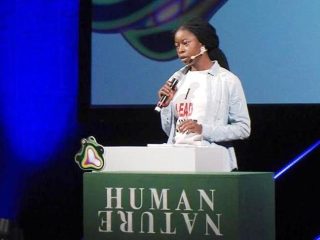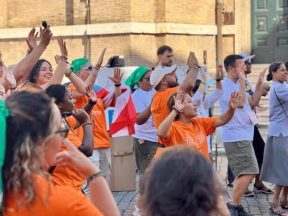African Women. Achieving one’s goals.
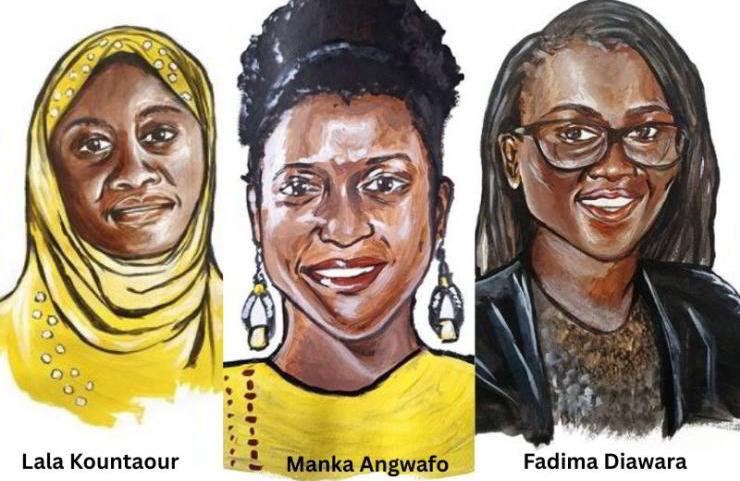
A physicist and oceanographer, a telephone entrepreneur and an economist. Three African women who see the great potential of Africa.
Lala Kounta, a physicist and oceanographer, is obsessed with the ecological impact of climate change, marine heatwaves and extreme natural events. She is the first to hold a PhD in Physical Oceanography and Climate Sciences in Senegal. She also has degrees from the University of Michigan (USA), the Sorbonne in Paris (France) and the Cheikh Anta Diop in Dakar (Senegal).
In 2022, she completed a six-month stay at the Canary Islands Ocean Platform, known as PLOCAN, a scientific and technological research infrastructure. Since then, she has focused her attention on measuring the temperature of the Atlantic Ocean in order to prevent and encourage the adoption of decisions that will stop the serious degradation of the marine environment due to climate change. “A two-degree increase in sea temperature means that nutrients decrease and fish die or migrate in search of colder currents and, therefore, fishermen fish in vain,” she explained to the Spanish newspaper El País in March 2022.
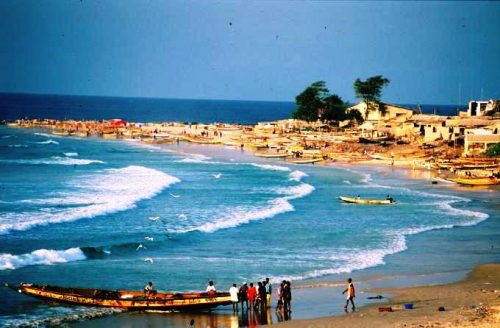
To understand the role that the ocean plays in local and regional climate. File swm
Before her doctorate, she graduated in Physical Sciences and did not hesitate to sacrifice time with her family when she accepted a scholarship from the Women for Africa Foundation to participate in its “Investigano” program. During that time, she focused on her main subject of study, related to the effects of climate change and its impact on the coasts of the Canary Islands.
“The temperature of the ocean affects the entire food chain, from plankton to people, creating an imbalance in the marine and terrestrial ecosystem,” she added in the same interview.
The Senegalese oceanographer is an example of the scientific level achieved on the African continent, not only for her capacity for work and tenacity but for the recognition and value that her theories and essays are given in the academic world. The project on the impact of heatwaves off the coast of West Africa on marine ecosystems is based on hypotheses that are starting to become reality in Senegal, such as the fact that the ocean erodes the country’s coasts and fish flee from the fishing grounds, where fishermen usually catch them.
The obsession with data and having the most complete and reliable record possible of the evolution of sea temperatures is what has made Kounta a point of reference and she is also creating a school through the classes she gives as an associate professor at the main university of Senegal’s capital.Observing the dynamics of the circulation of marine currents between Senegal and Mauritania, as well as climate variability, are the activities that Lala Kounta is currently focusing on at the Simeon Fongang Laboratory of Physics and Atmosphere in Dakar. “I want to understand the role that the ocean plays in local and regional climate modulations when hot days occur, to be able to predict and help policymakers adapt to future conditions,” the Senegalese said. (Carla Fibla García-Sala.)
Manka Angwafo. A Social Enterprise
In 2013, the young Manka Angwafo, a research analyst in the Office of the Chief Economist for Africa at the World Bank (WB), decided to spend the summer in her home country, Cameroon. She left her home country for the United States at the age of 18 to continue her studies. She enrolled at Tufts University, where she graduated in Economics and International Relations and, in 2008, obtained a Master’s degree in European Business. In 2009, after internships at Tudor Investment Corporation and Hawpoint Partners, she was hired by the World Bank (WB). There, she had the opportunity to analyse macroeconomic trends in the region and evaluate the policies developed by low- and middle-income countries on the continent that are emerging from conflict.
It is in this context that she spent five months in South Sudan, between June and October 2011, where she led a WB mission to analyse the functioning of health centres in the states of Jonglei and Upper Nile. When she arrived in South Sudan, she was still recovering from her volunteer experience in Haiti, where she had gone a year earlier, after the earthquake that had devastated the capital of the Caribbean country, Port-au-Prince, to rebuild the homes of people left homeless after the quake. But let’s go back to the start date, 2013.
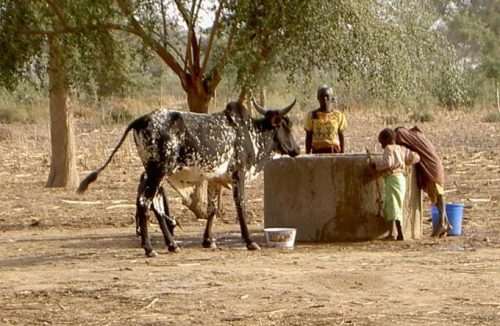
The vast majority of Cameroonian farmers are women who cannot make a living from their work. File swm
A simple vacation changed the life of the Cameroonian woman. In those weeks, she took the opportunity to harvest corn with her paternal grandmother – her mother is Jamaican. That process, which her paternal grandmother performed as her ancestors had done for centuries, caused many ears of corn to break and the loss of much of the grain. What happened to her grandmother was not a coincidence.
The vast majority of Cameroonian farmers are women who cannot make a living from their work. “I immediately understood that there was another way,” she said every time she was asked about those days. For the fall from the horse to be complete, she had to return to the United States, where she helped a friend’s uncle on the farm. During this time, she assimilated some of the resources of agricultural work and began to mature the idea of returning to Cameroon.
She returned in 2015 and founded Grassland Cameroon (GC), a social enterprise that aims to address the main challenges of farmers in the country: difficulty accessing credit to improve equipment and lack of training. GC provides low-interest loans that farmers can repay with part of their production. In addition, Angwafo’s company buys up to 70% of the remaining harvest and sells it on the market through wholesalers. Her work, which earned her the 2019 Cartier Initiative Award, has already reached more than 1,000 farmers, who have multiplied their production 2.5 times since being connected to GC. In an interview published on the Spore portal, the Cameroonian stressed that “men are more ambitious when it comes to starting a business, while women are more realistic. We aspire to what we know is possible, while they aspire to what they hope is possible.” (Javier Fariñas Martín)
Fadima Diawara. “Being in touch”
Fadima Diawara is a telephone entrepreneur “Don’t wait for the right moment because it never comes, persevere and try with what you have, give it your all, remember that you are not alone and never give up, don’t give up.” This is the advice that Guinean Fadima Diawara, founder of Kunfabo, the first African telephone brand, gives to those who want to make their dream come true.
Kunfabo, which in Mandinka means “To be in touch” or “To have news”, was founded in 2017 in Barcelona. Diawara had arrived in the city nine years earlier “for love” and had been able to exploit the technological and innovative impulse that characterizes the Catalan capital to create a team as enthusiastic as herself. “Barcelona is part of me, I feel like I’m in Conakry, at home. It is a place of opportunity when you make an effort to learn the language, relate, interact with people and work with a clear objective,” she explained in an interview during the launch of one of the brand’s three models, two smartphones and one without data, all in the low-cost range. “The Chinese dominate the African market with brands that are only sold on the continent, but with Kunfabo we value our Africanness. It is a brand created exclusively for people who live in Africa, with applications that accompany them in their daily lives.”
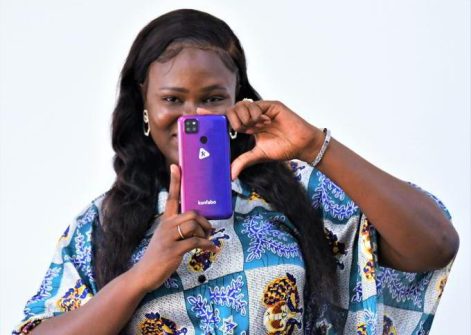
Kunfabo is a brand created exclusively for people who live in Africa. Courtesy of Kunafabo
In just over seven years, Kunfabo – which presents itself with a slogan as powerful as that of its founder: “Because it is your right” – has reached more than 70,000 customers and aims to have 100% African production, although for the moment it is obliged to have production partners in China. “If you want to achieve your goal, to do what you are truly passionate about, the important thing is to train and organize yourself,” Diawara recommends in her multiple appearances on African social networks and in Spanish media.
She divides her time between her native Conakry, where she attended primary school and university, and Barcelona. “I always knew I would return to my country because Africa lives in me. When I decided to create Kunfabo, I did it so that users who live on the continent could identify with it. That’s why we develop applications adapted to the health situation of African countries, also to our gastronomy (Afrocook collects recipes from all the countries where its terminals are sold), to art, finance or even to a specific WhatsApp. “Everyone responds to the way of communicating and relating in Africa.” Diawara has already shown that new technologies are not just a “white field”, nor should they be attributed exclusively to men. “It’s a very sexist sector where the gap is huge and you have to work twice as hard as a man. Also, if you fail, they will say it’s because you’re a woman”, she said. She emphasizes that the key is the team, “the collective brain”, a group of people who are not responsible for their gender or skin colour but are capable of achieving goals. (Carla Fibla García-Sala) – (Illustrations: Tina Ramos Ekongo)

